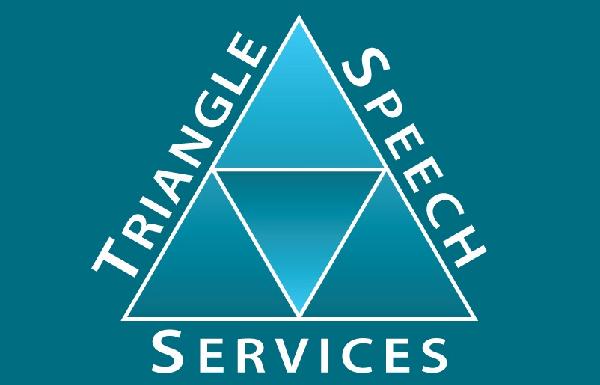|
|

Communication Matters
August 2015 Issue 84
Software vs. Live Interaction in Accent Modification
|
|
| TELL US YOUR STORYFeatured Article |  |
If you are a foreign born professional, we would like to hear from you. We are very interested in the story of how you are overcoming self-doubt and learning new skills.
We would be happy to feature your story in a future issue.
|
trOur Mission is to help our clients transform their accents from a communication barrier to a charming cultural flavor using "listener friendly" speech that is as close to Standard English as possible for them.
Order Mastering Meaning from Amazon.com or Lulu.com today online. The price is reduced from $19.99 to $10.00 + S & H and applicable sales taxes.
r
| |
We provide excellent interactive software combined with customized programming and feedback.
| Go to our Archive Home Page to read more fascinating newsletters.
|
|
|
Triangle Speech Services is the private, professional practice of Judith L. Bergman, a licensed speech-language pathologist (SLP) who specializes in foreign accent and regional dialect modification and related communication skills. I offer customized, individual tutorials to corporate-sponsored and self-enrolled individuals who speak English fluently but with moderate to severe accents that create challenges and frustrations in the workplace.
This is issue # 84 which equals about seven years of monthly newsletters! We're always alert for topic ideas. We're not selling; we're not even "marketing." Even with a full caseload and a waiting list, we want to keep informing and inviting readers to "think again" about the issues related to accent modification for those who speak English with a foreign accent or regional dialect pattern.
Two days ago, we received an interesting email quoted below and decided to share (and amplify) our response in this newsletter.
|
"Do you have any software that records the sound errors immediately

so that I can practice on my own and see my errors immediately outside of class?"
Is this person seeking to reduce her accent WITHOUT attending a "class" which, for us is an individual training session? What about the diagnostics and the customized curriculum? Does an accent consist only of "sound errors" and exactly how does one "see errors?"
Actually this was an excellent question because the writer is aware (1) that practicing outside of class is necessary and (2) that she needs to know what a specific accent feature is in order to try to correct it.
|
|
How do you get from here to there? Perhaps you planned the trip but forgot to buy the plane ticket!
Here is my response with some details added: 1. Yes, the online PESL (Pronouncing English as a Second Language) program allows a person to listen to a model of a single word or a sentence with the selected accent feature, record herself and then compare. Even better, a sound copy of the client's recordings can be sent daily to the instructor who can listen and email back printed or recorded feedback in the interval between the in-person training sessions.
2. This program is not sold directly to the public, but is made available only to instructors who have completed a training in how to use it and who are already certified or licensed speech pathologists, ESL teachers or linguists. It is a "cookbook" in that it has every sound in American English that any person from any native language background might need to practice. The individual needs to start with a detailed , comprehensive analysis of her accented speech. You don't need to work on EVERY sound in the program.
3. Accents are not only "sound" differences. Accented speech consists of sound pattern distortions 65% of which are due to incorrect intonation (patterns of syllable stress within single words) and incorrect prosody (patterns of word emphasis at the sentence level). You will also need to practice these features especially in your work-related vocabulary that we hear you mispronouncing.
4. No software that I know of analyzes an actual error i.e. "tells you" that you are saying /d/ instead of a voiced "th" or saying "development" with an incorrect intonation pattern. You need to be trained to recognize i.e. to hear, not see, the error. An auditory discrimination drill in the PESL program helps but the instructor has to select the error pattern to compare. Indian languages reverse/w/ and/v/ while the Spanish language speaker says /b/ for /v/. The lessons for many sounds have more than one auditory discrimination drill.
5. Knowing about any accent feature does not result in being able to change it. You didn't learn how to play soccer or a musical instrument by watching and listening. You learned by doing. You needed a coach. You needed feedback. You needed to practice.
To modify an accent you will need to practice sounds like the voiced and voiceless "th" in "the" and "think" and the many varieties of /r/ and "er" that are not in 37 of 40 of the world's major languages.You will feel weird and strange and it will be challenging to actually transfer correct sound and intonation patterns into everyday conversational speech. No software program can help you with that. About four years ago we developed our own awareness and carry-over procedures to help our clients use auditory feedback and self-correction in real conversations.
| |
|
We invite you to click on Triangle Speech Services to visit our informative website. Our goal is always to provide information, inspiration and encouragement since these are essential components of any successful learning experience. If you are seriously considering enrolling yourself or an employee in an individual tutorial with us or simply want to talk to us about our programs, please contact us through the contact page of our web site. We have a waiting list but are willing to conduct a free thirty-minute phone consultation with you. A potential client will need to score at least 80 (16/20) on a very, very basic multiple choice grammar screening test and converse in fluent (although accented) English during the initial "Information Session." Sincerely,
Judith L. Bergman M.A. CCC-SLP
Speech-Language Pathologist and Corporate Speech Trainer
Founder & Director of Triangle Speech Services |
|
|
|
|
|
|
|
|